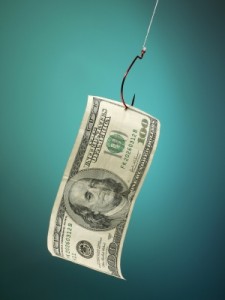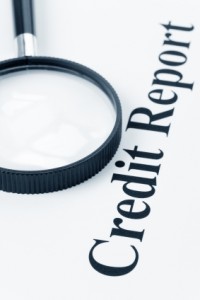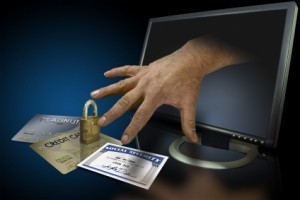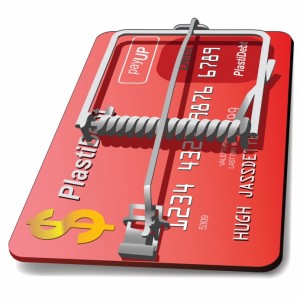January 12th, 2010
 The first thing to do this year with regard to credit is to read your credit report, learn your scores, and look for errors or signs of identity theft. The first thing to do this year with regard to credit is to read your credit report, learn your scores, and look for errors or signs of identity theft.
If you have credit cards you want to maintain high credit scores to prevent your credit limits from being lowered. Thus, your credit score is important even if you don’t plan any major credit purchases in the near future.
So get any errors corrected right away. And of course, if there’s any suspicious activity such as a balance on a card you haven’t used, a change of address you didn’t ask for, or an employer you don’t know – look into it immediately. Those are signs of identity theft.
Next, pay down your holiday purchases, because your card issuer could decide to hike the rate on your existing balances between now and February 22, when the new laws go into effect.
While the CARD Act is beneficial to consumers in many ways, it has promoted credit card issuers to think of new ways to profit. So be on the lookout for new fees, and keep an eye on your rewards points.
The new law left credit card issuers with the right to scale back their rewards programs and to make it more difficult for you to redeem their points. Thus, the best course of action is to redeem your points as soon as you have built up enough to do so. Be sure to read all the literature regarding those points, because some banks, such as Citi, have made changes that include an expiration date on points. If you don’t use them, you lose them, so hurry up and use them.
Interestingly, even while the banks are working to improve their own profits, they’re offering some free on line tools to help you improve your own financial situation.
These free tools include spending analysis tools and payment plan creation software that can help consumers set budgets and track their own spending habits in order to make necessary adjustments.
One caution, however. Some of these free benefits come with fine print. If you sign up, you could be opting in to a fee-based service that kicks in after an initial trial period of 30, 60, or 90 days. So don’t say “yes” until you’ve actually read the terms of service.
Remember, when you opt in you’ll check the little box that says you read them – if you don’t, and those terms spell out a monthly fee, they won’t feel obligated to reverse any charge they apply to your account.
Author: Marte Cliff
CreditScoreQuick.com your resource for free credit reports, credit cards, loans, and ground breaking credit news.
Posted in Uncategorized | Comments Off
January 11th, 2010
 When refinancing your home mortgage loan, you’ll get the lowest interest rates by taking a few preliminary steps. When refinancing your home mortgage loan, you’ll get the lowest interest rates by taking a few preliminary steps.
Begin with checking your credit report for errors. Experts say that at least 75% of all credit reports have errors. Some are minor, but some are serious and can hurt your scores.
Be sure to check for old accounts that have been paid in full but still show up – and old collections that should have been removed. Collections are supposed to come off your report after 7 years, but it doesn’t always get done.
After you’ve checked for financial mistakes, check your name and address. Incorrect spelling or wrong addresses won’t hurt your score directly, but consistency looks better to lenders.
If you find errors of any kind, write the credit bureau and ask them to make the corrections. Be sure to give full explanation, and be polite.
If you have some high credit card balances, pay them down as much as you can, and then transfer balances so that you are not using more than 30% of your credit line on any one card. If you can get it down to 20% or less, that’s even better.
Now for some things you should not do:
Don’t close any credit card accounts. The more credit you have available compared to the amount you’re using, the better your scores.
Don’t pay off your car or school loan. The more kinds of credit you are using responsibly, the better.
Don’t apply for any new credit card accounts – or take on any other kind of credit obligation – until after your refinance is final.
And here’s one that might shock you: Don’t pay off an old debt that has gone to collections. Say you were in dispute over a health club account several years ago and decided you just weren’t going to pay it. Since then it’s gone into collection and shows up as a black mark on your credit report.
If you decide to pay it now, it will show as new activity, and count more toward determining your credit score than if you just leave it alone and let it be past history.
You can gain points by contacting the collection agency directly and offering to pay the account if they will remove it from your credit report entirely. If the first person you speak to says no, ask to talk with a supervisor.
The first step is to read your credit report – order yours right now.
Author: Marte Cliff
CreditScoreQuick.com your resource for free credit reports, credit cards, loans, and ground breaking credit news.
Posted in Uncategorized | Comments Off
January 7th, 2010
 Next year, lenders will have to tell consumers if they’ve been subjected to “risk-based pricing” when getting less than favorable terms on a loan. Next year, lenders will have to tell consumers if they’ve been subjected to “risk-based pricing” when getting less than favorable terms on a loan.
Because the majority of credit reports do contain errors, this regulation could have the effect of enabling consumers to dispute the errors that harm their scores, and thus re-negotiate the loan in question.
Mistakes on credit reports can run the gamut from bills being listed as having late payments when the account has always been in good standing, to accounts being attributed to the entirely wrong consumer. The report could also show account balances for bills that have been paid in full.
That’s why it’s so important for consumers to regularly review their own credit reports and check for inaccuracies.
When you think how easy it is to hit the wrong key when you’re entering your own data at home, you can see how easy it would be for a worker who has been at it for several hours. All it takes is one wrong digit in a social security number to put someone else’s information on your credit report.
Consumers who do watch their credit reports have another advantage. They can spot signs of identity theft before a thief has time to do serious damage. Identity theft has become big business, and it’s expected to get worse as the economy gets worse.
The new rules will give lenders the option of providing their customers with a free copy of their credit score and an explanation of what it means, but don’t count on them to do so. In some instances lenders would prefer that you didn’t know your score – particularly if it’s a good one.
If you’ve checked for errors and gone through the steps to see that your report is accurate, but your scores still aren’t as high as you want, there are steps to take.
The first is, of course, to pay all your bills on time. Next look at your credit card accounts. If you owe 80% of the limit on one but zero on another, move your balances around to keep every card under 30%. Then, pay down the balances.
You can also ask for a credit line increase. This isn’t for the purpose of charging more, but to show that you have more credit than you use.
Meanwhile, don’t apply for credit unless you are positive that you both want and need it. Some reports indicate that every lender inquiry on your credit report will bring your score down 5 points.
Author: Mike Clover
CreditScoreQuick.com your resource for free credit reports, credit cards, loans, and ground breaking credit news.
Posted in Uncategorized | Comments Off
January 2nd, 2010
 Okay so 2009 is dead and gone. That is a good thing for some, and not so great for others. Some want to start over with a new year and leave everything in 2009 behind and in the past. However, for others, they are bringing mistakes from 2009 with them into the New Year… on their credit reports. So what should you do to make sure that your credit is safe and fault free? Pull it! And here is why… Okay so 2009 is dead and gone. That is a good thing for some, and not so great for others. Some want to start over with a new year and leave everything in 2009 behind and in the past. However, for others, they are bringing mistakes from 2009 with them into the New Year… on their credit reports. So what should you do to make sure that your credit is safe and fault free? Pull it! And here is why…
1. Identity theft
Believe it or not, there are some pretty clever criminals out there. There are some people who are sly enough to steal your account numbers, credit cards, socials, and other factors that are used as different avenues solely to use your name for their benefit financially, which, in turn, will leave you in quite a bind. You’re going to want to pull your credit to see if anyone has succeeded in stealing your identity, so that you can take care of the situation as soon as possible.
2. Source of information
Your source of information on your credit reports is all of your past and present information. When you apply for credit cards, loans, or pull your credit, you have to fill out your address, social, birth date, and other information about your present self. This information gets reported to your credit reports, and a lot of the time (and I mean A LOT) it is reported incorrectly. You need to check this information on your reports to see that it is accurate, because most likely there is a mistake.
3. Errors on accounts
Mistakes happen. It’s as simple as that. It’s almost inevitable. You want to pull your credit to make sure that accounts on your credit reports are reporting accurately. You want to make sure that account balances are reporting correctly. That is a huge deal. If you have a paid off credit card, but the credit bureaus are reporting the balance as the high limit, then it is going to look like your credit card is maxed out, and ultimately drop your scores 50-100 points, all because of a mistake made by the bureaus, which, as I said earlier, is pretty much going to happen unless you monitor your scores and stay on top of your credit.
So pull your scores early this year and make sure that your reports are cleaned up so you can stay credit worthy, financially stable, and happy in the beginning of the new decade!
Author: Mike Clover
CreditScoreQuick.com your resource for free credit reports, credit cards, loans, and ground breaking credit news.
Posted in Uncategorized | Comments Off
December 30th, 2009
Q:
Hi my name is Linda M
I have a very low credit score, due to a few accounts going to collections. Right now I’m working with the collections company to pay the items off. From reading the articles on your site which are Great by the way. To rebuild credit get a credit card which would be the best type of card for someone with bad credit. Would it be a Secured Card or a Subprime Card and what is the difference between the two?
A:
Hi Lina,
This is a great credit card question. The main difference in these cards is the approval process. Sub prime credit cards typically have credit requirements and will extend credit up to $500 to start with. Usually there fees are higher than secured credit cards. Secured Credit Cards do not extend credit to you, and require a deposit of $200 to $300 from you. Everyone gets approved for secured credit cards, not everyone will be approved for a Subprime credit card. I would recommend our secured credit card on our site under credit cards section.
Mike Clover
Posted in Uncategorized | Comments Off
December 22nd, 2009
 Protecting your personal credit from identity theft is a crucial part in becoming and staying financially successful. Identity theft is when someone, without you knowing, uses your personal information to apply for or obtain any kind of loan or credit. This can cause significant problems with your credit when the person who wrongfully used your information decides to default on the payment after actually receiving the monetary loan or using the credit cards that are in your name. After all, why would they make payments on borrowed cash that won’t affect them negatively if they default? It will only affect YOU negatively, and there is almost no way to prove that it wasn’t actually you who borrowed the money. So, how do you avoid getting caught in the identity theft trap that will crush your credit scores before you even find out that its happening? Protecting your personal credit from identity theft is a crucial part in becoming and staying financially successful. Identity theft is when someone, without you knowing, uses your personal information to apply for or obtain any kind of loan or credit. This can cause significant problems with your credit when the person who wrongfully used your information decides to default on the payment after actually receiving the monetary loan or using the credit cards that are in your name. After all, why would they make payments on borrowed cash that won’t affect them negatively if they default? It will only affect YOU negatively, and there is almost no way to prove that it wasn’t actually you who borrowed the money. So, how do you avoid getting caught in the identity theft trap that will crush your credit scores before you even find out that its happening?
There are a few ways to stay clear of having your identity stolen. Some are common sense, like cutting up your credit/debit cards after they expire or immediately cancelling them after you lost the cards. However, some other ways that are affective are not so known in the public world. First, don’t ever carry your social security card on you. You could easily be robbed or lose your purse or wallet. When this happens, the wrong person might come across your very private (or should be) social security number. With the wrong people in possession of your social, some can easily obtain credit or make fraudulent claims under your name, which will, in turn, destroy your credit scores or cause you to be the suspect in a crime.
Monitoring different accounts is also a sufficient way to protect yourself from identity theft. In case someone happens to gain access to your bank accounts or gain possession of your personal information, if they are spending money in your name or taking money from the ATM from your account, monitoring your bank account will catch this at an early stage, and most banks will work with you in seeing that you are protected from then on, as long as you notify them in a timely manner.
One of the most effective ways of protecting yourself from identity theft is monitoring your credit scores. There are different sites you can log into, and, typically for a monthly fee, you can monitor your scores and any activity that happens with your credit. Most sites will send you alerts via email, and even call you when something bazaar or unusual has happened on your reports.
If you get caught in the mix of identity theft, make sure you call your bank and credit card companies, and let anyone involved in the situation know that your identification has been stolen. Most companies and banks are very helpful in these situations, so make sure you take care of it immediately. Identity theft is inevitable in America, but if you are careful, you can prevent it.
Author: Kyle Gilbert
CreditScoreQuick.com your resource for free credit reports, credit cards, loans, and ground breaking credit news.
Posted in Uncategorized | Comments Off
December 20th, 2009
 Interest rates are beginning to inch upward, and that always signals an increase in the number of mortgage refinance applications. Homeowners typically wait until the market reaches the bottom and then try to move quickly when rates start to rise. Interest rates are beginning to inch upward, and that always signals an increase in the number of mortgage refinance applications. Homeowners typically wait until the market reaches the bottom and then try to move quickly when rates start to rise.
This time, however, it won’t be so easy.
In spite of government programs that say you can refinance your mortgage for 105% or even 125% of your home’s present value, the banks prefer that you have at least 10% equity.
On top of that, even if you’ve paid on time for the last 5 years, they’ll make you prove that you deserve the loan. Gone are the streamlined loans that required nothing more than a good credit score.
Of course, the good credit score is still required. But now you can expect to furnish documents and more documents.
If you’re about to apply for a mortgage refinance, you might as well start gathering those documents and take them along when you visit your mortgage broker or bank.
Start with your last two most recent pay stubs, three months of bank and brokerage statements, and two years worth of tax returns, with W-2’s.
Then gather all the documentation on anything you do in addition to salaried employment. Do you have rental properties? Bring all the information. Do you have a small business that you operate on week-ends? Bring all the information. Do you or your spouse receive Social Security checks or the proceeds of a settlement? Bring all the information.
Next, gather everything about your house. Start with your original title insurance policy and your homeowner’s insurance policy. If you have survey information or if you have documentation of a well or septic system, bring it along.
You’ll also be required to sign an IRS Form 4506-T. This form authorizes the lender to get a transcript of your past tax returns from the Internal Revenue Service. While it used to be required only on self-employment loans, now every borrower must agree. It seems they just don’t trust you to bring in a true copy of the tax form you filed.
Finally, all the paperwork must be perfect. Investors are refusing to buy loans with even the slightest imperfection in the paperwork. So, since lenders make their money by selling those loans, be prepared for their nit-picking.
By the time you’ve finished getting your home mortgage refinanced you may feel like an accused criminal, and you may be completely worn out. But if you can shave a couple percent off your interest rate, it will be worth the hassle.
Author: Mike Clover
CreditScoreQuick.com your resource for free credit reports, credit cards, loans, and ground breaking credit news.
Posted in Uncategorized | Comments Off
December 19th, 2009
 The experiences of the past several months have taught us all one thing: We need to get out of credit card debt, one way or another. The experiences of the past several months have taught us all one thing: We need to get out of credit card debt, one way or another.
The credit card companies are going to keep increasing rates and fees, and before long a $100 payment might only reduce our balance by $50. It may not be that extreme, but it’s a given that more of each payment will go to interest and fees, and less to paying off the debt.
We do have some relief coming in February 2010, when card issuers will be required to apply anything over the minimum payment to our balance carrying the highest rate, but by then, all our rates may be much higher than we are comfortable with.
So – we need to be rid of them.
If you have just one card, you can throw any extra money at it and get it down quickly. But most of us have more than one, so the first thing to do is take a good look at the balances, the interest rates, the annual fees, and the credit available on each.
One approach is to consolidate all of your balances onto the card that carries the lowest interest rate. At one time, we saw promotional rates as low as 0.99% – and moving everything to that card would allow for a fast pay-down.
I haven’t seen anything that low for the last 6 months, but maybe it exists. But – even if it does, there’s a second factor to consider before you transfer all your balances. If you use more than 30% of the available credit on any one account, you’ll harm your credit scores. Look at the available credit and keep your future plans in mind before making this decision.
Remember also that even if you have a $20,000 credit limit and transfer only $6,000, you could open your next statement and find that your credit limit is now only $6,000. Credit card companies have been doing this to consumers across the board,
The other approach is to cut back on discretionary spending and add extra money to the payment on your cards. You could spread that out evenly, but getting rid of a payment entirely is more satisfying.
Most would recommend paying off the balance with the highest interest first. That will save you the most money. But if you need the mental and emotional boost of getting something – anything – paid in full, look instead to the card with the smallest balance.
Then, when you’ve paid that off, apply all the money you were paying on that card to paying off the next one. You’ll have success faster than you think.
Author: Mike Clover
CreditScoreQuick.com your resource for free credit reports, credit cards, loans, and ground breaking credit news.
Posted in Uncategorized | Comments Off
December 17th, 2009
 Just because your credit score might prevent you from purchasing a home, it probably won’t prevent you from purchasing a car. Because car loans are for less money and for shorter terms than home loans; and because cars are easier to repossess than houses, lenders aren’t quite as strict. Just because your credit score might prevent you from purchasing a home, it probably won’t prevent you from purchasing a car. Because car loans are for less money and for shorter terms than home loans; and because cars are easier to repossess than houses, lenders aren’t quite as strict.
In fact, if a home mortgage lender has classified you as “sub-prime” that’s no reason to assume that you’ll carry the same classification when buying a car. That’s why it’s important to shop around for your loan and to avoid car lots that primarily cater to sub-prime borrowers.
The fact is, you may qualify for better rates and terms than you can get from those lots. But if you assume it’s the best you can do and go straight to a sub-prime lender, you’ll automatically pay higher interest.
Start with the bank or credit union where you have checking or savings accounts. Then see if perhaps your insurance company offers auto financing. You can also find lenders on line. Look for the cheapest money you can find – the lowest interest rate and the fewest number of payments.
Too many buyers look at the monthly payment rather than the total cost. Be smart and look at the total cost first. If you have to stretch that car loan out to 84 months, you should look for a less expensive car.
Since credit inquiries do affect your credit scores, consolidate your loan shopping into a short time-frame. When potential lenders and the credit bureaus can clearly see that several inquiries all point to one purchase, several inquiries will have the effect of one inquiry.
You should do your car shopping ahead of time, so you have a good idea of the car you want and thus loan value you’ll need, but while you’re shopping, don’t allow car salesmen to check your credit.
What to beware of when searching for a car loan:
• Loan contracts with add-ons. Steer clear of any loan that’s contingent on purchasing extended warranties, insurance, or other after-market services. This is a red flag that you’re dealing with a sub-prime lender and are about to pay too much for your loan.
• The “yo-yo” sale. Some car dealers offer loans and let the customer sign and drive away with the car without finalizing the terms of the loan. The buyer then finds out days or even weeks later that the terms of their loan have changed. They may be required to bring in more money for the down payment, their interest rate may be higher, or the payments larger. Be sure the terms on the loan are final before signing the document and taking the car. This practice sounds far-fetched, but it happens to about 4.5% of all buyers – and 11% of all buyers with bad credit.
Author: Mike Clover
CreditScoreQuick.com your resource for free credit reports, credit cards, loans, and ground breaking credit news.
Posted in Uncategorized | Comments Off
December 17th, 2009
 If you’re trying to prove your credit worthiness, you want all of your accounts in good standing to show on your credit report. They’ll raise your credit scores and show potential creditors that you’re a good risk. If you’re trying to prove your credit worthiness, you want all of your accounts in good standing to show on your credit report. They’ll raise your credit scores and show potential creditors that you’re a good risk.
But, unfortunately about 15 million Americans have mortgage loans that don’t show up on credit reports.
These are generally loans with small Credit Unions that don’t report to the credit bureaus. Since reporting does carry a charge, not all credit unions choose to do so.
However, some do, and mistakes do happen. So before you take any other steps, contact your creditor and ask if your account was simply overlooked in their reporting. If so, ask them to send an update.
It could be that they report to one bureau and not to the others. It could be that somehow your account fell through the cracks. It could be that they simply don’t report.
If they do report to one bureau, point out that entry to your would-be creditor and explain that it is with a small credit union that doesn’t report to all.
If they don’t report to any credit bureaus, you’ll won’t be able to get that account listed, but you CAN improve your chances of getting the new loan at good terms by providing your own documentation.
Gather up your year-end reports for the years you’ve had the mortgage, along with current statements showing that your payments are current. Under Section 202.6 (b)(6) of the Equal Credit Opportunity Act, you as a consumer do have a right to report this information, and your would-be creditor is obligated to consider it when determining your credit worthiness.
According to a recent Bankrate.com article, a gentleman named Michael Nathans is working on a Web-based consumer self-storage application for bill-paying information that should meet all reporting requirements. This would allow consumers to present their own financial file to any lender and have it scored.
In the meantime, be sure to check your own credit reports regularly, and take steps to correct any errors you find.
If you have accounts in good standing that aren’t reported, do the research and see if your creditor will report them upon request. If not, do take along your own documentation when requesting a loan.
This means that good record keeping on your part is a must. If you haven’t already set up files and a good bookkeeping system, do it now.
Author: Mike Clover
CreditScoreQuick.com your resource for free credit reports, credit cards, loans, and ground breaking credit news.
Posted in Uncategorized | Comments Off
Disclaimer: This information has been compiled and provided by CreditScoreQuick.com as an informational service to the public. While our goal is to provide information that will help consumers to manage their credit and debt, this information should not be considered legal advice. Such advice must be specific to the various circumstances of each person's situation, and the general information provided on these pages should not be used as a substitute for the advice of competent legal counsel.

|
 The first thing to do this year with regard to credit is to read your credit report, learn your scores, and look for errors or signs of identity theft.
The first thing to do this year with regard to credit is to read your credit report, learn your scores, and look for errors or signs of identity theft.


 When refinancing your home mortgage loan, you’ll get the lowest interest rates by taking a few preliminary steps.
When refinancing your home mortgage loan, you’ll get the lowest interest rates by taking a few preliminary steps. Next year, lenders will have to tell consumers if they’ve been subjected to “risk-based pricing” when getting less than favorable terms on a loan.
Next year, lenders will have to tell consumers if they’ve been subjected to “risk-based pricing” when getting less than favorable terms on a loan. Okay so 2009 is dead and gone. That is a good thing for some, and not so great for others. Some want to start over with a new year and leave everything in 2009 behind and in the past. However, for others, they are bringing mistakes from 2009 with them into the New Year… on their
Okay so 2009 is dead and gone. That is a good thing for some, and not so great for others. Some want to start over with a new year and leave everything in 2009 behind and in the past. However, for others, they are bringing mistakes from 2009 with them into the New Year… on their  Protecting your personal credit from
Protecting your personal credit from Interest rates are beginning to inch upward, and that always signals an increase in the number of mortgage refinance applications. Homeowners typically wait until the market reaches the bottom and then try to move quickly when rates start to rise.
Interest rates are beginning to inch upward, and that always signals an increase in the number of mortgage refinance applications. Homeowners typically wait until the market reaches the bottom and then try to move quickly when rates start to rise. The experiences of the past several months have taught us all one thing: We need to get out of credit card debt, one way or another.
The experiences of the past several months have taught us all one thing: We need to get out of credit card debt, one way or another. Just because your
Just because your  If you’re trying to prove your credit worthiness, you want all of your accounts in good standing to show on your credit report. They’ll raise your credit scores and show potential creditors that you’re a good risk.
If you’re trying to prove your credit worthiness, you want all of your accounts in good standing to show on your credit report. They’ll raise your credit scores and show potential creditors that you’re a good risk.